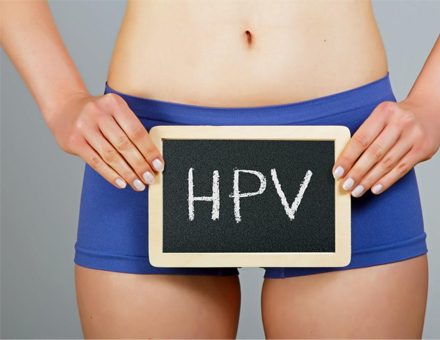It may sound scary to hear you have a sexually transmitted disease. Fear of the unknown, worrying about your partner, embarrassment over the stigma, and concern for your own health can cause a lot of stress. But, if you have the human papillomavirus (HPV), you may have heard some misinformation that is making you panic needlessly.
Ulin Sargeant, MD, at Monrovia Internal Medicine & Primary Care in Duarte, California, can help dispel the myths and give you the facts about this very common condition. Armed with the right information, you can get proper treatment and keep yourself and your partner safe and healthy. Here’s what you need to know.
Understanding HPV
There are more than 100 variations of the human papillomavirus. About 60 of them are transmitted by entering a cut or break in the skin of your feet or hands. These kind often cause warts on the hands or feet.
The rest are transmitted through sexual contact and may show up as genital warts. Of those, about 90% are low-risk and look like little cauliflower patches on your genitals. Some of the HPV viruses, however, do carry a high risk for developing cancer. In fact, about 70% of women with cervical cancer get it from HPV 16 or HPV 18.
The good news is that you can prevent getting HPV with a vaccination and other protective measures. If you already have it, early treatment can usually save you from complications and even cancer.
Fact: HPV is common
HPV is more common than you might think. It’s estimated that about 80% of all sexually active people in the United States will get HPV at some point in their lives. About 79 million people have it currently.
Fact: Condoms don’t offer complete protection from HPV
Condoms definitely reduce your chances of contracting HPV, because it’s spread through skin-to-skin contact, not bodily fluids. However, because the virus can infect areas of your genitalia that are not covered by a condom, it’s not 100% effective.
Fact: HPV can be transmitted during oral sex
While genital warts are a symptom of HPV, it can also infect the throat and tonsils through oral sex. Most strains of HPV don’t cause cancer, but some do and must be treated to prevent cancer of the penis, vulva, vagina, cervix, anus, throat, and tonsils.
Myth: An HPV diagnosis or abnormal Pap smear means cancer
Most HPV warts are benign, meaning they aren’t cancerous. Likewise, an abnormal Pap smear doesn’t always indicate cancer. It’s important to get a regular Pap test so that we can detect any changes in the cells and tissues and prevent certain cancers from developing.
Myth: My partner has HPV, so they must have cheated on me
The HPV virus can lie dormant for weeks, months, or years. So if your partner just discovered they have HPV, it only means they contracted it at some point in their life, not necessarily during your relationship.
Myth: My partner should have known they had HPV
Often, HPV has no symptoms and the infected person has no idea they have it. In many cases, the virus resolves itself and the person never knows they had it. However, if genital warts have appeared or a routine exam has revealed the virus, the infected person should abstain from sex until they’re treated.
If you have a healthy immune system, your body will likely eliminate or suppress the virus over time so that you won’t pass it along to your partner. However, because there are so many strains of HPV, you could contract another type. In a case of untreated HPV, sexually active couples often share the virus until their immune systems suppress it.
Where can I get the vaccination?
At Monrovia Internal Medicine & Primary Care, we can answer all your questions about HPV and administer the vaccine that will help prevent you from getting it. We recommend that boys and girls receive the vaccination between ages 11-12 to fully protect them. They will need two doses. If they wait until age 15 or beyond, they will need three doses. Adults can also get the vaccine to protect themselves.
Since the vaccine was introduced, there has been a 56% drop in the reported cases of HPV infections. If you want to protect yourself or your children from this potentially dangerous virus, book an appointment online or over the phone with Monrovia Internal Medicine & Primary Care today.


